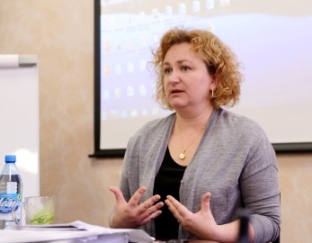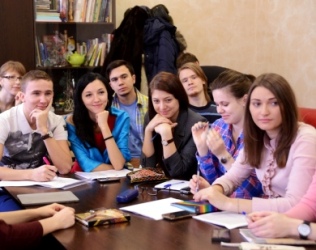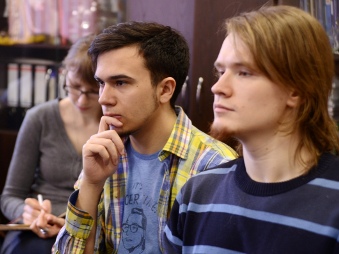Seminar held by Agnieszka Halemba on modern approaches in anthropological studies of religion

The seminar was open to all interested and was attended by university teachers and students from departments of history, philosophy, psychology, language and journalism studies, as well as fellows from other universities and organizations – Tomsk Polytechnic University, Tomsk State University of Control Systems and Radio Electronics, Tomsk State Pedagogical University, Tomsk Regional Museum of Local History, and The First Tour Bureau LLC – in total, by over 30 people.

Among the main themes running through the whole course of seminar was the change in the vector of anthropological studies, namely the transition from studying religion as a worldview system constructed by anthropologists (most clearly expressed in symbolic theories) to studying it as a changing practice constituting a resource for human life. The modern anthropology of religion is also very much focused on ‘understanding’ religious communities and their practices, a topic which takes anthropologists into the study of mechanisms of consciousness (cognitive anthropology) and of consciousness control techniques.

A number of anthropological films and documentaries were shown as an illustration of some problems in focus. One of the most vivid and memorable moments of the seminar was watching the video of rap shot by Catholic monks which demonstrates how religion and the media interact and how people are stimulated to come to faith in the modern European society.
The seminar themes and discussions that took place had a lively response on the part of students who stressed the relevance of the terminological and methodological problems stated and the debatable character of the majority of the research cases studied which illustrate how ethnographic material can be interpreted through theoretical analysis. A. Halemba also turned to the student fieldwork experience and upon the completion of the seminar they presented their own research projects and received a valuable feedback.





 The project "Man in a Changing World. Identity and Social Adaptation: Past and Present" is funded by the Russian Government
The project "Man in a Changing World. Identity and Social Adaptation: Past and Present" is funded by the Russian Government 